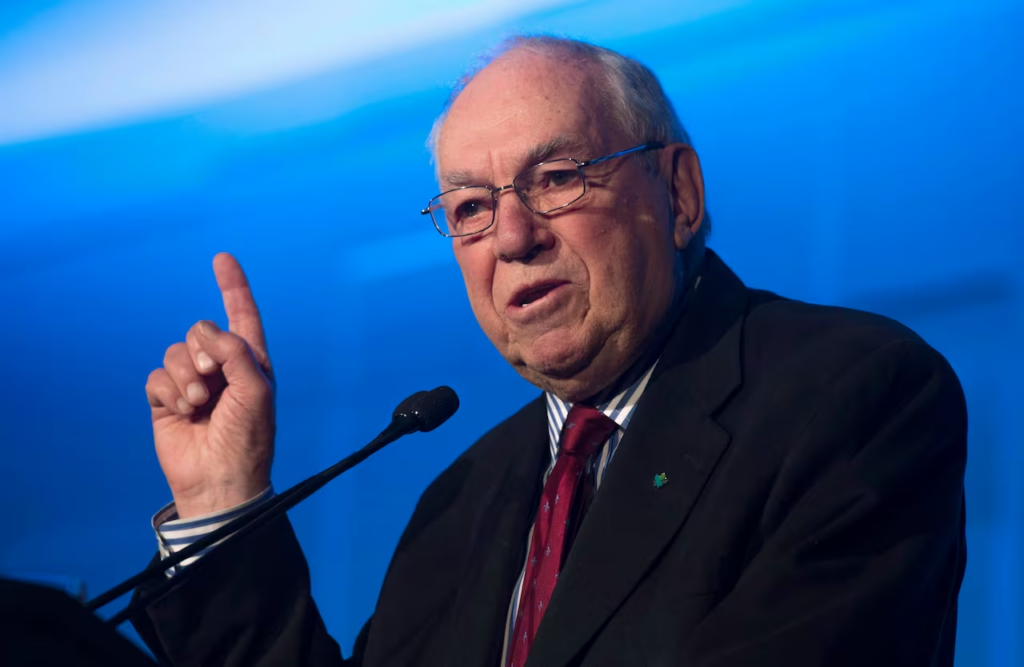The Jan. 11, 2024, edition of the Global Compassion Coalition Digest offered a highly informative panel event on “How do we make politics more compassionate?” Though I do not consider myself political, the concept of compassion does hold my interest, and I felt compelled to share a timely story with the Compassion Coalition in response.
On Jan. 28, 2024, there was a state funeral held in Canada for a beloved 87-year-old retired politician, Ed Broadbent, who was in federal politics for more than 20 years. He had been a national opposition leader for the New Democratic Party (NDP) of Canada for 14 years through four elections. According to the New Democratic Party Statement of Principles, the NDP strives to replace oppression and privilege with democracy and equality. Generations of politicians celebrated his legacy and accomplishments. Hundreds of politicians, young and old, from all political parties gathered to honour this special man. Broadbent was respected for the profound impact he left on Canada and his ability to remain civil and congenial with his political opponents while pushing for a more fair and inclusive country.

What touched me deeply is that Broadbent is remembered as a tireless fighter for a better and more compassionate Canada. He was a champion for Canadians. Bob Rae, Canada’s ambassador to the United Nations said “Mr. Broadbent displayed a quality that is often undervalued in politics: kindness. The thing that he believed in more than anything else was decency. He was a decent guy. He treated people fairly.” Ed Broadbent was known to those in the NDP party as Honest Ed and Mr. Decent.
Manitoba Provincial Premier Wab Kinew highlighted Broadbent’s “dedication to Indigenous rights and environmental justice, as well as his underlying passion for the blue collar. It wasn’t just about achieving good things; he was about pursuing them with a good nature. This was his politics of joy.” Kinew called Broadbent a “beacon of integrity and a champion of justice. He embodied perseverance in the hopes of making our country better.” Former Alberta premier Rachel Notley said, “Ed was the perfect combination of ethics, intellect, empathy and authentic connection with a concern for regular Canadians.” The Prime Minister of Canada Justin Trudeau said, “Broadbent was a tireless campaigner for social justice. Canada is significantly better for his years of service, both in politics and out of it.”
In his first resignation speech (1989) to supporters, Broadbent urged the party to “find someone new to take the next step towards building that decent, exciting and compassionate Canada we all believe in.” In 1990, after political retirement, Broadbent was appointed as head of the International Centre for Human Rights and Democratic Development. After a two-year return to politics in 2003 he left to support his ill wife. From then until his death, he continued to mentor young politicians including the present leader of the Federal NDP Party, Leader Jagmeet Singh. At the state funeral, Singh said, “We are so fortunate that Ed chose to spend his life in pursuit of his vision and his hope of justice and fairness for all.”
I never met Mr. Broadbent, but as an ordinary Canadian citizen, I am incredibly grateful for all his major contributions and civil behaviour. Politicians who behave in such a manner instil goodness, safety, equity, and kindness. I believe politicians such as Broadbent function as strong building blocks in the process of compassionate politics.
There are, of course, other compassionate leaders in Canada and around the world. Politicians supporting and appreciating one another is vital, as is support and appreciation among every one of us. A little kindness goes a long way.
More details about Ed Broadbent’s memorial and legacy can be found through this CBC News story, where all above quotes are from.
By Cathy Bennett. Cathy is a retired Healthcare Manager from Burlington, Ontario, Canada
